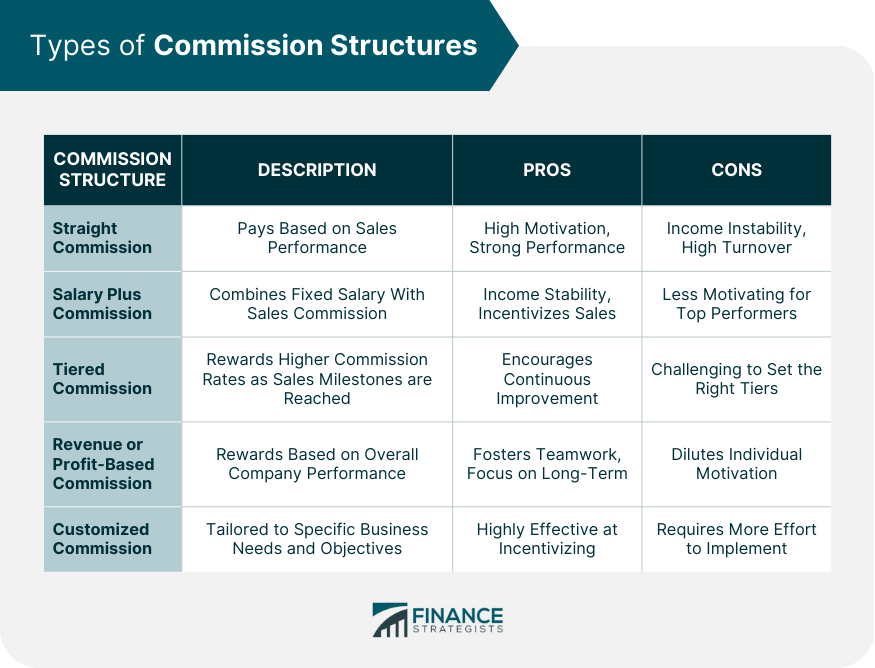The importance of finance commissions cannot be overstated in the realm of economic governance. These commissions play a crucial role in determining the distribution of resources, fiscal management, and ensuring financial stability. Did you know that the first finance commission in India was established in 1951? Since then, several finance commissions have been constituted to address the evolving economic needs of the country.
The finance commission is responsible for recommending the distribution of tax revenues between the central and state governments, as well as allocating grants-in-aid to states. By considering factors such as population, fiscal capacity, and special needs of states, finance commissions strive to promote equity and balanced development across the nation. For instance, during the 14th Finance Commission, there was a significant increase in the devolution of funds to states, empowering them to cater to their individual needs and priorities. This exemplifies the pivotal role played by finance commissions in fostering cooperative federalism and ensuring economic progress.


What were the recommendations of the 13th Finance Commission for local bodies?
The 13th Finance Commission made specific recommendations for local bodies in India. Let’s take a closer look at these recommendations and their implications.
The 13th Finance Commission, which was constituted by the Government of India for the period 2010-2015, recommended several measures to strengthen the finances of local bodies across the country. These recommendations aimed to enhance the financial capacity of local governments to perform their functions effectively and efficiently.
How Many Finance Commissions Exist in Karnataka?
Finance commissions play a crucial role in the financial governance of states. In Karnataka, the number of finance commissions determines the allocation of resources and financial management within the state. Understanding the number of finance commissions in Karnataka is essential to comprehend the state’s fiscal policies and their impact on various sectors.
Karnataka, like other states in India, has multiple finance commissions that are responsible for assessing the state’s financial situation and recommending measures for resource allocation. The finance commissions are constituted at regular intervals and aim to promote fiscal stability and equitable distribution of resources in the state.
What are the financial resources of local bodies?
Local bodies play a crucial role in the governance and development of a region. To effectively perform their responsibilities, they require adequate financial resources. These resources enable local bodies to carry out infrastructure development, provide essential services, and implement various programs and initiatives for the welfare of the community.
The financial resources of local bodies can come from multiple sources. Some common sources of revenue for local bodies include:
- Taxation: Local bodies have the authority to impose and collect various taxes, such as property tax, entertainment tax, and professional tax.
- Grants: Local bodies receive grants from higher levels of government, such as state or central governments, to support their activities and projects.
- Fees and Charges: Local bodies generate revenue through fees and charges for services provided, such as water supply, waste management, and issuance of licenses.
- Borrowings: Local bodies have the option to borrow funds from financial institutions to meet their financial requirements.
These financial resources help local bodies in fulfilling their obligations and promoting the overall development and well-being of the community they serve.
State and Local Finance in India: What You Need to Know
State and local finance in India refers to the financial management and funding mechanisms at the state and local government levels. It involves the allocation, utilization, and management of resources to meet the fiscal needs of individual states and local bodies within the country.
State and local governments in India have their own revenue sources, which include taxes, fees, grants from the central government, and revenue from local services. These governments are responsible for managing their finances, including budgeting and expenditure planning, revenue generation, debt management, and financial reporting.

Who is the chairman of the 16th Finance Commission?
The 16th Finance Commission is an important body responsible for recommending the distribution of financial resources between the central government and the state governments in India. As per the question, the 16th Finance Commission chairman refers to the individual leading this commission. The chairman plays a crucial role in analyzing the financial needs, resources, and challenges faced by the government at both the central and state levels.
The 16th Finance Commission chairman is appointed by the President of India and holds the responsibility of formulating recommendations regarding the sharing of central taxes, grants-in-aid to states, and other financial matters. The chairman, along with the other members of the commission, assesses the fiscal requirements of the central and state governments and makes suggestions to ensure a fair and balanced distribution of funds. The recommendations of the 16th Finance Commission chairman significantly impact the fiscal stability and development of both the central and state governments.
How Many Members are in the Finance Commission?
The Finance Commission is a crucial body in the financial governance of a country. It plays a significant role in the allocation of financial resources between the central government and the state governments. The number of members in the Finance Commission varies depending on the country’s specific regulations and requirements.
In most countries, the Finance Commission consists of a panel of experts and representatives from various fields such as finance, economics, and public administration. The commission is usually appointed by the government and operates independently to ensure fairness and transparency in the distribution of funds.
Who is the Chairman of the 15th Finance Commission?
The 15th Finance Commission is an important body responsible for making recommendations on the distribution of financial resources between the central government and the state governments of India. The chairman of the 15th Finance Commission plays a crucial role in overseeing this process and ensuring that the financial needs of both the central and state governments are met effectively.
The current chairman of the 15th Finance Commission is Shri N.K. Singh. He was appointed as the chairman on 27th November 2017 and has been leading the commission in its efforts to assess the financial requirements of the various tiers of government and make recommendations accordingly. Under his leadership, the commission aims to promote balanced regional development and fiscal stability across the country.
How many finance commissions are there currently?
The finance commission is an important body in India that plays a crucial role in the fiscal federalism of the country. It is responsible for recommending the distribution of financial resources between the central government and the state governments. The finance commission is constituted by the President of India every five years, and its recommendations are highly influential in shaping the fiscal policies of the country.
Currently, there is one finance commission in India, known as the “current finance commission.” The current finance commission was constituted in 2020 and is headed by N.K. Singh. This commission is responsible for making recommendations on various aspects related to finance, such as the distribution of taxes, grants, and other financial resources between the central and state governments. Its recommendations are aimed at promoting fiscal stability, economic growth, and the overall welfare of the nation.
Who is the chairman of the 17th Finance Commission?
The 17th Finance Commission is headed by which individual?
The 17th Finance Commission is a government body responsible for making recommendations on the distribution of financial resources between the central government and the state governments in India. It is chaired by a prominent individual who oversees the commission’s work and ensures that the financial allocations are fair and equitable.
How many members are there in the finance commission?
The finance commission is a body responsible for the distribution of financial resources between the central government and the state governments in a country. It plays a crucial role in ensuring fiscal federalism and maintaining a balance of resources among different levels of government.
The number of members in a finance commission can vary depending on the country. In some countries, there may be a fixed number of members, while in others, it may vary according to the specific requirements and structure of the commission. Typically, a finance commission consists of a chairman and several members who are experts in the field of finance, economics, and public administration.
What is the 15th Finance Commission?
The 15th Finance Commission is an important body in India’s financial system. It plays a vital role in determining the distribution of financial resources between the central government and the state governments. The commission is constituted every five years to review and recommend the sharing of tax revenues, grants-in-aid, and other financial resources between the center and the states.
As of now, there have been a total of 15 Finance Commissions in India. Each commission is responsible for assessing the financial needs and resources of the central and state governments and recommending measures to ensure a fair and balanced distribution of funds. The 15th Finance Commission, appointed in 2017, will provide recommendations for the fiscal years 2020-2025.
Who will be the Chairman of the 16th Finance Commission in 2023?
The 16th Finance Commission is an important institution in India responsible for recommending the distribution of financial resources between the central government and the state governments. It plays a crucial role in determining the allocation of funds for various developmental activities and grants-in-aid to states.
The Chairman of the 16th Finance Commission, who will be appointed in 2023, will lead the commission in its work of assessing the financial needs of the central and state governments, considering factors like population, income disparities, and fiscal responsibility. The Chairman’s role is significant in ensuring a fair and equitable distribution of funds to promote balanced development across the country.
What is the Finance Commission?
Frequently Asked Questions
Here are some commonly asked questions about finance commissions:
1. How many finance commissions have been formed in India?
There have been a total of 15 finance commissions formed in India since its independence in 1947. Each commission is typically constituted for a period of five years and plays a crucial role in the allocation of financial resources between the central government and the states.
2. What is the purpose of the finance commission?
The primary purpose of the finance commission is to determine the distribution of tax revenue between the central government and the states. It also recommends measures to enhance fiscal discipline, promote cooperative federalism, and address any imbalances in the fiscal situation of the country.
3. How are the members of the finance commission selected?
The members of the finance commission are appointed by the President of India. The commission typically consists of a chairman, who is a person with significant financial or administrative experience, and four other members who represent different areas of expertise.
4. What factors does the finance commission consider while making its recommendations?
The finance commission takes into account several factors while formulating its recommendations. These include the resources available to the government, the needs of the states, the fiscal capacity of the states, the cost of essential social services, the expenditure requirements of the central government, and the need for balanced regional development.
5. What happens after the finance commission submits its report?
After the finance commission submits its report, the recommendations are carefully examined by the central government. The government then takes appropriate actions, such as devolving funds to the states, implementing fiscal reforms, and addressing any issues highlighted by the commission.

So, in conclusion, the number of finance commissions in a country depends on its governance structure and policies. There is no fixed number of finance commissions that every country has to adhere to. It varies from country to country based on their specific needs and requirements.
Each finance commission is responsible for analyzing the financial situation of the country, making recommendations for fiscal management and resource allocation, and ensuring the equitable distribution of resources among states or regions. Their role is crucial in promoting economic stability and driving sustainable growth.






